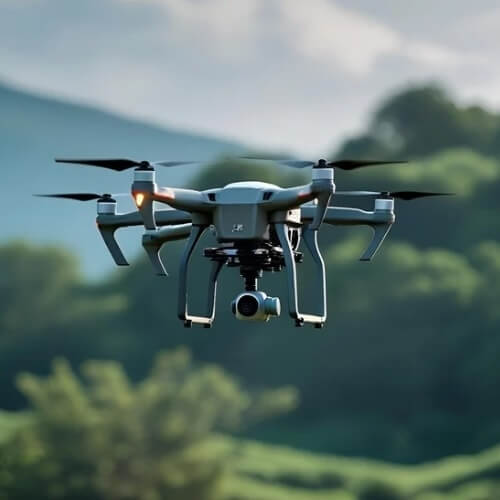ACLU Sues Sonoma County over Code Enforcement’s Runaway Drone Spying Program
Page Media

SANTA ROSA – Six years ago, Sonoma County code enforcement (CES) launched a warrantless drone surveillance program that officials said would address unpermitted cannabis grows in hard to access rural areas. But it has since become a runaway spying operation with no accountability, trampling residents’ right to privacy in and around their homes and targeting people for a wide array of unrelated code violations that have resulted in millions of dollars in excessive fines.
Today, the ACLU Foundation of Northern California and co-counsel O’Melveny & Myers LLP sued Sonoma County’s code enforcement service, its parent agency, and key officials who operate the program. The complaint was filed on behalf of three longtime residents and calls on the Sonoma County Superior Court to block code enforcement from conducting aerial surveillance on someone’s home and private life without first getting a warrant – as is required by the California Constitution.
“We all have the right to go about our lives in privacy in an around our homes without having to worry about a government drone flying overhead and recording us without a warrant or our knowledge,” said Matt Cagle, senior staff attorney with the ACLU Foundation of Northern California. “For too long, Sonoma County code enforcement has used high-powered drones to warrantlessly sift through people’s private affairs and initiate charges that upend lives and livelihoods. All the while, the County has hidden these unlawful searches from the people they have spied on, the community, and the media.”
Using drones equipped with high-powered cameras and zoom lenses, CES agents monitor and record people’s homes, fenced-in yards, swimming pools and hot tubs, and areas under awnings or through curtainless windows.
Plaintiff Nichola Schmitz’s story illustrates the invasiveness and illegality of the program. On Oct. 10, 2023, county inspectors used a drone to monitor and record Schmitz’s rural farm without a warrant. Schmitz, who is Deaf and lives with her mother and sister, could not hear the drone hovering above and only became aware of it when someone else on her property pointed it out.
Schmitz then ran to her bedroom and closed its large windows, afraid the drone would peer in. She worried that the drone had spied on her earlier that day either when she was naked or wrapped in a towel after her bath.
“This horrible experience has shattered my sense of privacy and security,” Schmitz said. “I’m afraid to open my blinds or go outside to use my hot tub because who knows when the county’s drone could be spying on me.”
She spent $25,000 for a contractor to fix an alleged grading violation. But she still faces $10,000 in fines for the unpermitted shed. The county has placed a lien on her property and threatened to take her to court. Because there was no search warrant, the evidence from the drone was obtained unlawfully.
Many county residents share the experience of Schmitz and other plaintiffs of having their privacy violated and lives upended. As our lawsuit illustrates, Sonoma County code enforcement officials were aware that these flights invade privacy, and yet they killed a proposal that would have prevented warrantless drone surveillance over people’s homes.
Forty years ago, the California Supreme Court prohibited the government from conducting aerial surveillance of people’s homes and the surrounding areas without a warrant.
“These protections are more important than ever today, as drones make it cheaper and easier for government agencies to pry into people’s lives, invade the sanctity of their homes, and upend their finances,” said Jonathan P. Schneller, a partner at O’Melveny & Myers, LLP.
Read the complaint here.
###
